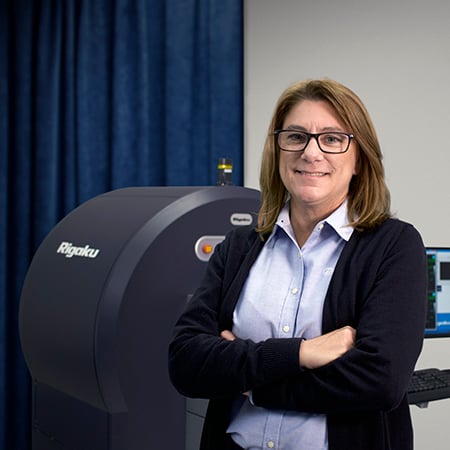How Much Does a Benchtop X-ray CT Scanner Cost?
Sep 25, 2024

Are you overwhelmed or confused about choosing the right benchtop X-ray CT (computed tomography) scanner? Are you contemplating which CT scanner will meet your application needs while staying within your budget?
Read: What is micro-CT?
I have worked as an application scientist and sales manager in the analytical instrument industry for 18 years. During this time, I have helped many people with their challenges in different industries. I know it can be hard to choose the right capital equipment while staying within your budget and meeting all your research needs.
The price of benchtop X-ray CT scanners can range from $150K to well over $500K, and many factors can affect the overall cost of the instrument. In this article, I will explain the factors you should consider when purchasing a scanner to choose the right one and stay within budget.
Let's dive in with some key questions:
What is a benchtop X-ray CT scanner?
Which benchtop X-ray CT scanner is right for me?
What if a benchtop CT is not right for me?
What is a benchtop X-ray CT scanner and how much does it cost?
A benchtop X-ray CT scanner is a small 2D and 3D X-ray imaging system designed to fit on a standard lab bench. It provides non-destructive testing for a wide range of materials.
A benchtop X-ray CT scanner: CT Lab HX
Industries as diverse as geology, electronics, pharmaceuticals, additive manufacturing, aerospace, and automotive can benefit from these scanners, as they offer detailed internal images and quantitative data without damaging precious samples. This helps ensure products' quality, optimize manufacturing processes, analyze product failures, and advance research and development of new materials and products.
Benchtop X-ray CT scanners are versatile tools for various applications:
Process Control: Detect internal defects, conduct precise dimensional inspections, and verify assemblies non-destructively.
Failure Analysis: Investigate the causes of structural and functional failures by imaging internal structures.
Material Characterization: Analyze porosity and composite materials.
Research & Development: Aid in failure analysis, prototyping, and material testing.
Non-destructive Imaging: Essential for examining cultural artifacts, medical devices, and electronics.
A benchtop CT scanner can be easier to procure than a floor model and offers several advantages:
- Lower startup costs (lower instrument price, fewer utilities required, smaller footprint)
- Lower cost of ownership (maintenance, power consumption costs)
- Simple setup (typically plug into power supplies you already have in the lab)
- Easy operation
While I list many advantages of a benchtop CT, you should consider:
- If the limited sample size meets my application needs
- If a benchtop's limited X-ray voltage and power are appropriate for my sample types
In summary, benchtop X-ray CT scanners offer a lot of flexibility in a small package and are a great choice if they meet your analysis needs.
As mentioned above, benchtop CT scanners cost anywhere from $150K to well over $500K, depending on how you configure them. Scanners equipped with a 100 kV or lower X-ray source cost $150K-$225K. They are typically used for low-density and soft materials.
For small (a few to a few tens of millimeters) light metallic parts (Al and Ti) and small electronic components, you should be considering a system with a 130 kV source. These systems are about $225K-$400K.
For high-density materials, you likely need to consider a scanner with a minimum of 160 kV source to as high as 400 kV. For this type of application and high-voltage measurements, we highly recommend a floor model unit instead of a benchtop to provide the most flexibility. This type of system can range anywhere from $500K to $2M+. The price range is wide because these systems account for the ability to scan dense materials, large sample formats, and possible integration within a process control environment.
The cost to purchase a benchtop X-ray CT scanner:
|
System format |
X-ray source power |
Price |
|
Benchtop |
<100 kV |
$150-225K |
|
100-130 kV |
$225-400K |
|
|
Floor model |
160-400 kV |
$500K-2M+ |
Most systems include a 1-year manufacturer's warranty, and long-term service contracts are available after the warranty period. You should budget 8-12% of the cost of the system for service costs if you plan to purchase one.
Which benchtop X-ray CT scanner is right for me?
Whether a benchtop X-ray CT scanner meets your needs is defined by your sample material, the minimum feature size you need to "see" in your sample size, and, of course, your budget.
Sample material
As mentioned earlier, benchtop systems with up to 130 kV sources are ideal for low-to-medium-density materials. This would include composite materials, CFRP (carbon fiber reinforced polymer), PCBs (printed circuit boards), and light metallic parts. When considering higher-density samples, such as transition metal parts or large-format battery cells, you will likely have to look at floor models with a higher voltage and higher-power X-ray source.
Feature size/sample size
The typical benchtop scanner's highest spatial resolution—the smallest feature size you can observe—is a few microns. This is why these scanners are also called micro-CT scanners. However, because the spatial resolution is correlated to the field of view (FOV) of your scan, you must consider what resolution is realistically achievable on your specific samples.
Benchtop CT scanners can typically accommodate samples up to 200 mm. The sample needs to fit in the sample chamber of the system and rotate at least 180°. If you need to scan a larger sample or you need higher-resolution scans, you will have to consider a floor model that meets those needs.
Read: X-ray CT Scanner Buyers Guide
Read: How Much Does a Micro CT Scanner Cost?
|
Sample size (FOV) |
Feature size (spatial resolution) |
|
~ 200 mm |
~ 70 µm |
|
~ 100 mm |
~ 35 µm |
|
~ 50 mm |
~ 18 µm |
|
~ 15 mm |
~ 5 µm |
Budget
Several factors contribute to the total cost of benchtop X-ray CT scanners. The X-ray source, detector, and sample stage mostly determine your base costs.
Benchtop X-ray CT scanners have X-ray sources ranging from 20 kV to 160 kV. As we discussed in the previous section, the maximum voltage of the X-ray source significantly affects the system’s price.
Accessories and optional items will increase the total cost of a benchtop X-ray CT scanner as well. Several accessories can be integrated to enhance the capabilities of benchtop X-ray CT scanners for your application. Discuss your experiment needs with your vendor to find a solution that fits your needs and budget.
Optional Items and Costs to Consider
|
Component/Accessory |
Description |
Typical Cost (USD) |
|
Sample changer |
Automated sample changer for high throughput |
$50K-$100K |
|
In-situ tensile/compression stage |
Allows mechanical testing during scanning |
$30K-$70K |
|
Temperature stage |
Controls sample temperature, typically as low as -40°C or as high as 350°C |
$30K-$70K |
|
Advanced analysis software |
Machine Learning-based segmentation, simulations, quantitative analysis, etc. |
$12K-$80K |
What if a benchtop CT is not right for me?
If you find your applications require a floor model for higher voltage, power, or resolution, I recommend reviewing the following articles to find the right model.
Read: X-ray CT Scanner Buyers Guide
Read: How Much Does a Micro CT Scanner Cost?
What’s next?
I hope this article has given you a better idea of the price of a benchtop CT scanner and helped you determine if it is the right fit for you.
Purchasing an expensive instrument can be an overwhelming process. Our team of experts would be happy to help you find the right CT scanner for your needs. To learn more about X-ray CT, you can explore our learning content or direct your questions to one of our experts.

Subscribe to the X-ray CT Email Updates newsletter
Stay up to date with CT news and upcoming events and never miss an opportunity to learn new analysis techniques and improve your skills.

Contact Us
Whether you're interested in getting a quote, want a demo, need technical support, or simply have a question, we're here to help.

